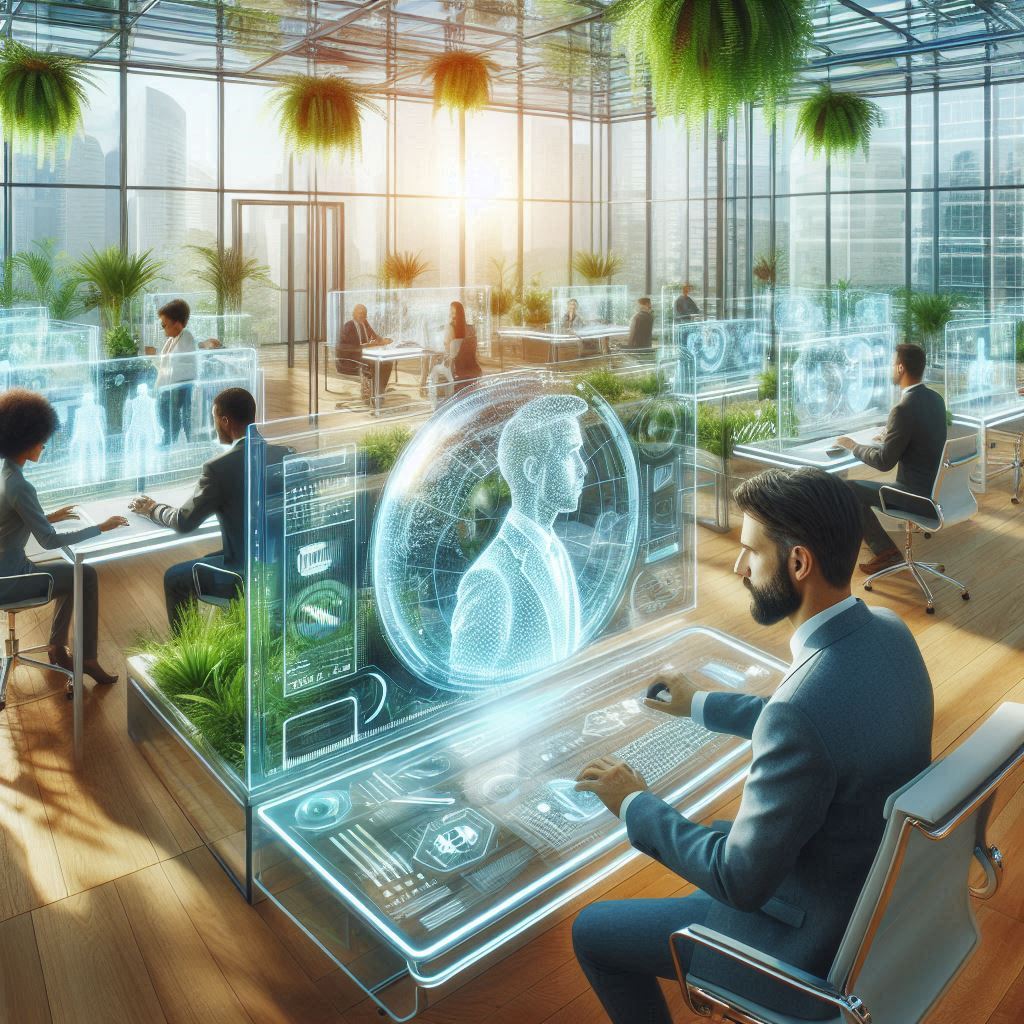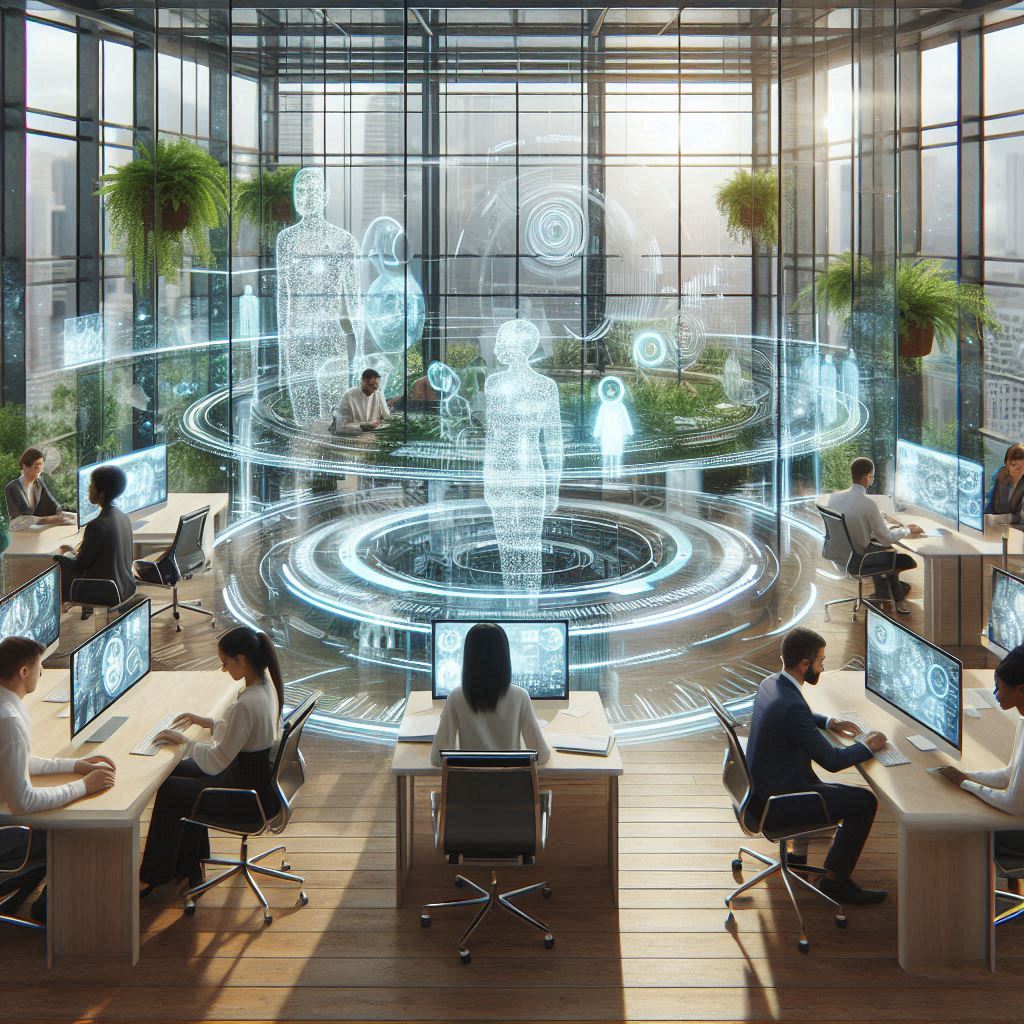The Future of Work


Discussing the Future of Work
- How do you think jobs will change in the next 10 to 20 years?
- What new types of jobs do you think will exist in the future that don’t exist today?
- How do you feel about the idea of working from home? Do you think it will become more common in the future?
- What skills do you think will be most important for future jobs?
- How do you think technology, like AI and automation, will affect jobs? Will it create more jobs or take them away?
- Do you think people will need to change careers more often in the future? Why or why not?
Vocabulary Related to Work and Employment
- What does the term “gig economy” mean? Can you think of examples of jobs in the gig economy?
- What is “remote work”? How does it differ from traditional office work?
- Can you explain what “job automation” means? What kinds of tasks might be automated in the future?
- What does “upskilling” mean? Why is it important for workers in today’s economy?
- What is “freelancing,” and how is it different from having a full-time job?
- What does “work-life balance” mean? Why is it important in choosing a career?
Understanding the Impact of Technology and Globalization
- How do you think globalization will change the way people work around the world?
- What are some advantages and disadvantages of working with people from different countries?
- How do you feel about the rise of digital nomads—people who work remotely while traveling? Would you like this lifestyle?
- How do you think businesses will need to change to adapt to new technologies?
- Do you think technology will make work more flexible or more demanding? Why?
- How do you think education needs to change to prepare people for future jobs?
Conversations About Career Planning and Work-Life Balance
- How do you choose a career that will be relevant in the future? What factors do you consider?
- Do you think lifelong learning will be necessary for future workers? How can people continue to learn throughout their careers?
- How do you think the idea of retirement will change in the future? Will people work longer or retire earlier?
- How do you discuss career goals with your friends or family? Do they influence your decisions?
- Do you think it’s better to specialize in one area or to have skills in many different fields? Why?
- How do you balance your work or studies with your personal life? Do you think this will become more difficult or easier in the future?
The Future of Work: Trends, Challenges, and Opportunities
The future of work is an evolving landscape shaped by technological advancements, shifting societal expectations, and changing economic conditions. As we look ahead, several key trends and developments are likely to redefine how we work, where we work, and what skills will be in demand. This exploration will cover the major trends influencing the future of work, potential challenges, and emerging opportunities.
Key Trends Shaping the Future of Work
- Remote and Hybrid Work Models
- Trend: The COVID-19 pandemic accelerated the adoption of remote work, and many organizations are now embracing hybrid work models that combine remote and in-office work.
- Implications: Remote work offers flexibility, reduces commute times, and can lead to a better work-life balance. However, it also presents challenges such as maintaining team cohesion, managing productivity, and ensuring data security.
- Automation and Artificial Intelligence (AI)
- Trend: Automation and AI are increasingly being integrated into various aspects of work, from routine administrative tasks to complex decision-making processes.
- Implications: While automation can improve efficiency and reduce costs, it also raises concerns about job displacement and the need for reskilling. Workers may need to adapt by acquiring skills in areas where human oversight is essential, such as creativity and problem-solving.
- Gig Economy and Freelancing
- Trend: The gig economy, characterized by short-term, flexible, and freelance work arrangements, is on the rise.
- Implications: This shift offers greater flexibility and independence for workers but can also lead to income instability and a lack of traditional employment benefits. Workers and employers will need to navigate new forms of job security and benefits.
- Emphasis on Skills Over Degrees
- Trend: There is a growing focus on skills and competencies rather than formal educational qualifications.
- Implications: Employers are increasingly valuing practical skills, certifications, and hands-on experience over traditional degrees. This shift opens opportunities for individuals to enter new fields through alternative learning paths such as online courses, bootcamps, and vocational training.
- Increased Use of Data and Analytics
- Trend: Data-driven decision-making is becoming more prevalent, with organizations leveraging big data and analytics to drive business strategies and improve performance.
- Implications: This trend requires workers to develop data literacy and analytical skills. Businesses need to ensure ethical data practices and consider the implications of data privacy.
- Focus on Employee Well-Being
- Trend: There is a growing emphasis on mental health, work-life balance, and overall employee well-being.
- Implications: Organizations are adopting wellness programs, flexible work arrangements, and supportive workplace cultures. Addressing well-being can enhance productivity, reduce absenteeism, and improve job satisfaction.
- Global Talent Pools
- Trend: The rise of remote work has expanded the talent pool for many organizations, allowing them to hire talent from around the world.
- Implications: This global approach can lead to a more diverse workforce and access to specialized skills. However, it also requires managing cross-cultural communication, different time zones, and varying legal requirements.
- Sustainability and Corporate Responsibility
- Trend: There is increasing pressure on companies to address environmental sustainability and corporate social responsibility.
- Implications: Workers are seeking employers who align with their values and are committed to ethical practices. Businesses are incorporating sustainability into their operations and strategies, which can impact job roles and industry practices.
Challenges of the Future of Work
- Job Displacement and Skills Gap
- Automation and AI may lead to job displacement, particularly in roles involving routine tasks. There is a pressing need for reskilling and upskilling to bridge the skills gap and prepare workers for new roles in emerging fields.
- Economic Inequality
- The benefits of technological advancements may not be evenly distributed, potentially exacerbating economic inequality. Addressing this disparity requires policies that promote equitable access to education, training, and employment opportunities.
- Data Privacy and Security
- With the increased use of data comes the responsibility to protect it. Ensuring data privacy and security is a significant challenge, requiring robust measures to prevent breaches and misuse.
- Maintaining Work-Life Balance
- The blurring of boundaries between work and personal life, particularly with remote work, can lead to difficulties in maintaining work-life balance. Organizations and individuals need to establish clear boundaries and practices to manage this balance effectively.
- Ethical Use of Technology
- The ethical implications of AI and automation, such as bias and decision-making transparency, need careful consideration. Developing ethical frameworks and guidelines is essential to ensure technology is used responsibly.
Opportunities in the Future of Work
- Innovation and Creativity
- As routine tasks become automated, there will be greater opportunities for innovation and creative problem-solving. Workers who excel in these areas will be in high demand.
- New Job Roles and Industries
- The emergence of new technologies and business models will create new job roles and industries. Opportunities will arise in fields such as AI development, cybersecurity, and green technology.
- Personalized Learning and Development
- Advances in technology enable personalized learning experiences, allowing individuals to tailor their education and skills development to their career goals and interests.
- Diverse and Inclusive Work Environments
- The global talent pool and emphasis on diversity can lead to more inclusive work environments. Organizations that prioritize diversity and inclusion can benefit from varied perspectives and experiences.
- Flexibility and Autonomy
- The rise of remote and flexible work arrangements offers individuals greater control over their work environment and schedules, enhancing work-life balance and job satisfaction.
Conclusion
The future of work is characterized by rapid change and evolving trends that will significantly impact how we work and live. Embracing remote work, automation, and data-driven decision-making, while addressing challenges such as job displacement and economic inequality, will shape the future of work. By leveraging opportunities for innovation, personalized learning, and diverse work environments, individuals and organizations can navigate this future effectively. Engaging in discussions and debates about these issues will help us better understand and prepare for the changes ahead.
Questions for Debate
- Will Automation Lead to a Net Increase or Decrease in Jobs?
- Debate Question: Will the rise of automation and AI ultimately create more job opportunities than it displaces?
- Should Employers Be Responsible for Reskilling Their Workers?
- Debate Question: To what extent should employers invest in reskilling and upskilling their employees to adapt to technological changes?
- Is Remote Work the Future of Employment?
- Debate Question: Will remote work become the dominant model for the future of employment, or will in-office work remain essential for most industries?
- How Can We Ensure Fair Distribution of the Benefits of Technological Advancements?
- Debate Question: What measures can be taken to ensure that the benefits of technological advancements are distributed equitably across different socioeconomic groups?
- What Role Should Governments Play in Addressing the Challenges of the Future of Work?
- Debate Question: What responsibilities do governments have in shaping policies and regulations to address the challenges and opportunities of the future of work?
Writing About the Future of Work
- Write about the job you imagine yourself doing in the future. How might it be different from jobs today?
- Describe a technology that you think will change the way people work. How will it impact daily tasks?
- Imagine you are starting your own business in the future. What type of business would it be, and why?
- Write about the pros and cons of working from home. How do you think it will affect your work-life balance?
- Describe how you plan to keep learning and developing your skills throughout your career.
- Write an essay on how you think the concept of work will change in the next 50 years. What will be the biggest differences from today?
